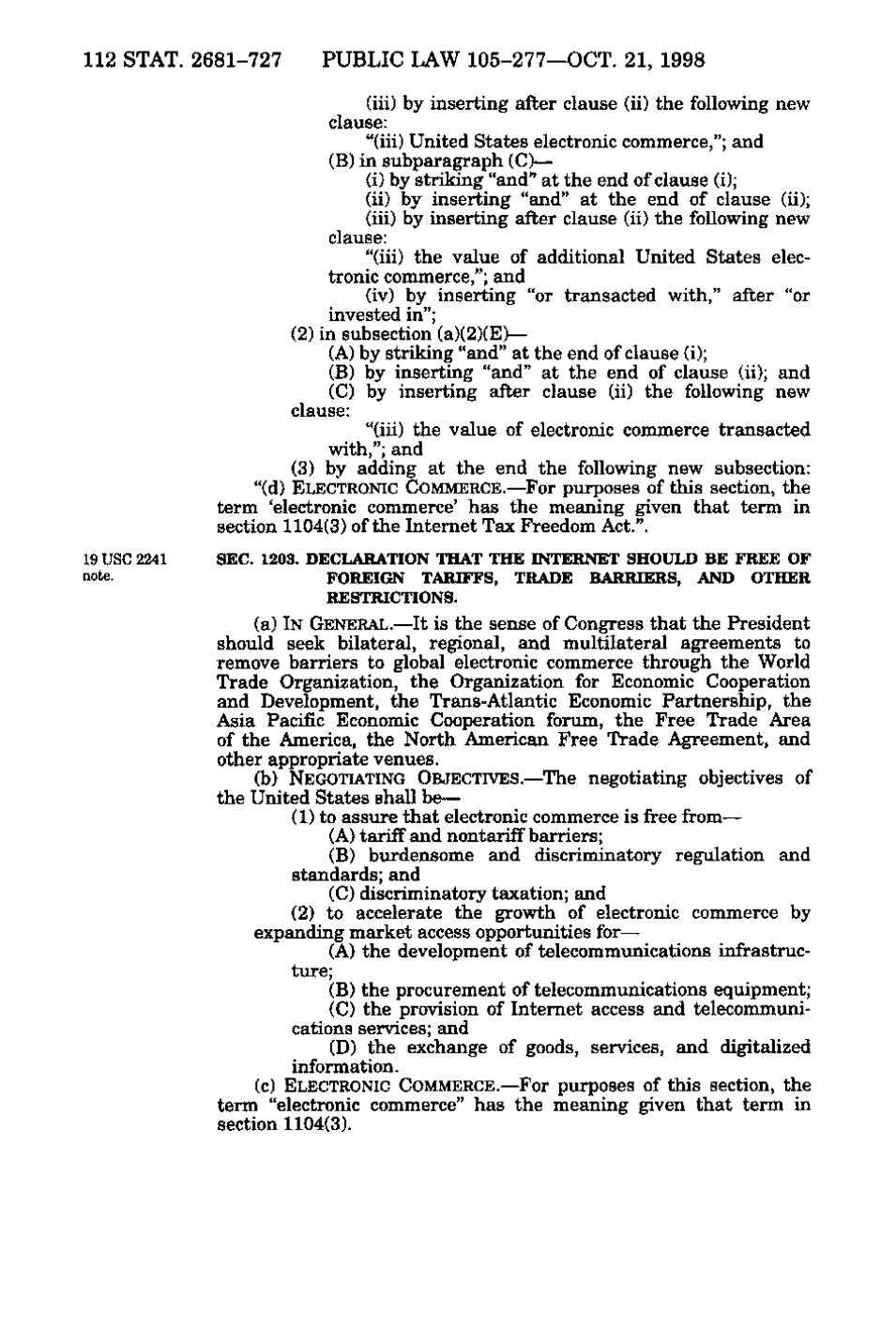112 STAT. 2681-727 PUBLIC LAW 105-277—OCT. 21, 1998 (iii) by inserting after clause (ii) the following new clause: "(iii) United States electronic commerce,"; and (B) in subparagraph (C)— (i) by striking "and" at the end of clause (i); (ii) by inserting "and" at the end of clause (ii); (iii) by inserting after clause (ii) the following new clause: "(iii) the value of additional United States electronic commerce,"; and (iv) by inserting "or transacted with," after "or invested in"; (2) in subsection (a)(2)(E)— (A) by striking "and" at the end of clause (i); (B) by inserting "and" at the end of clause (ii); and (C) by inserting after clause (ii) the following new clause: "(iii) the value of electronic commerce transacted with,"; and (3) by adding at the end the following new subsection: "(d) ELECTRONIC COMMERCE.—For purposes of this section, the term 'electronic commerce' has the meaning given that term in section 1104(3) of the Internet Tax Freedom Act.". 19 USC 2241 SEC. 1203. DECLARATION THAT THE INTERNET SHOULD BE FREE OF note. FOREIGN TARIFFS, TRADE BARRIERS, AND OTHER RESTRICTIONS. (a) IN GENERAL.—It is the sense of Congress that the President should seek bilateral, regional, and multilateral agreements to remove barriers to global electronic commerce through the World Trade Organization, the Organization for Economic Cooperation and Development, the Trans-Atlantic Economic Partnership, the Asia Pacific Economic Cooperation forum, the Free Trade Area of the America, the North American Free Trade Agreement, and other appropriate venues. (b) NEGOTIATING OBJECTIVES.— The negotiating objectives of the United States shall be— (1) to assure that electronic commerce is free from— (A) tariff and nontariff barriers; (B) burdensome and discriminatory regulation and standards; and (C) discriminatory taxation; and (2) to accelerate the growth of electronic commerce by expanding market access opportunities for— (A) the development of telecommunications infrastructure; (B) the procurement of telecommunications equipment; (C) the provision of Internet access and telecommunications services; and (D) the exchange of goods, services, and digitalized information. (c) ELECTRONIC COMMERCE.— For purposes of this section, the term "electronic commerce" has the meaning given that term in section 1104(3).
�
